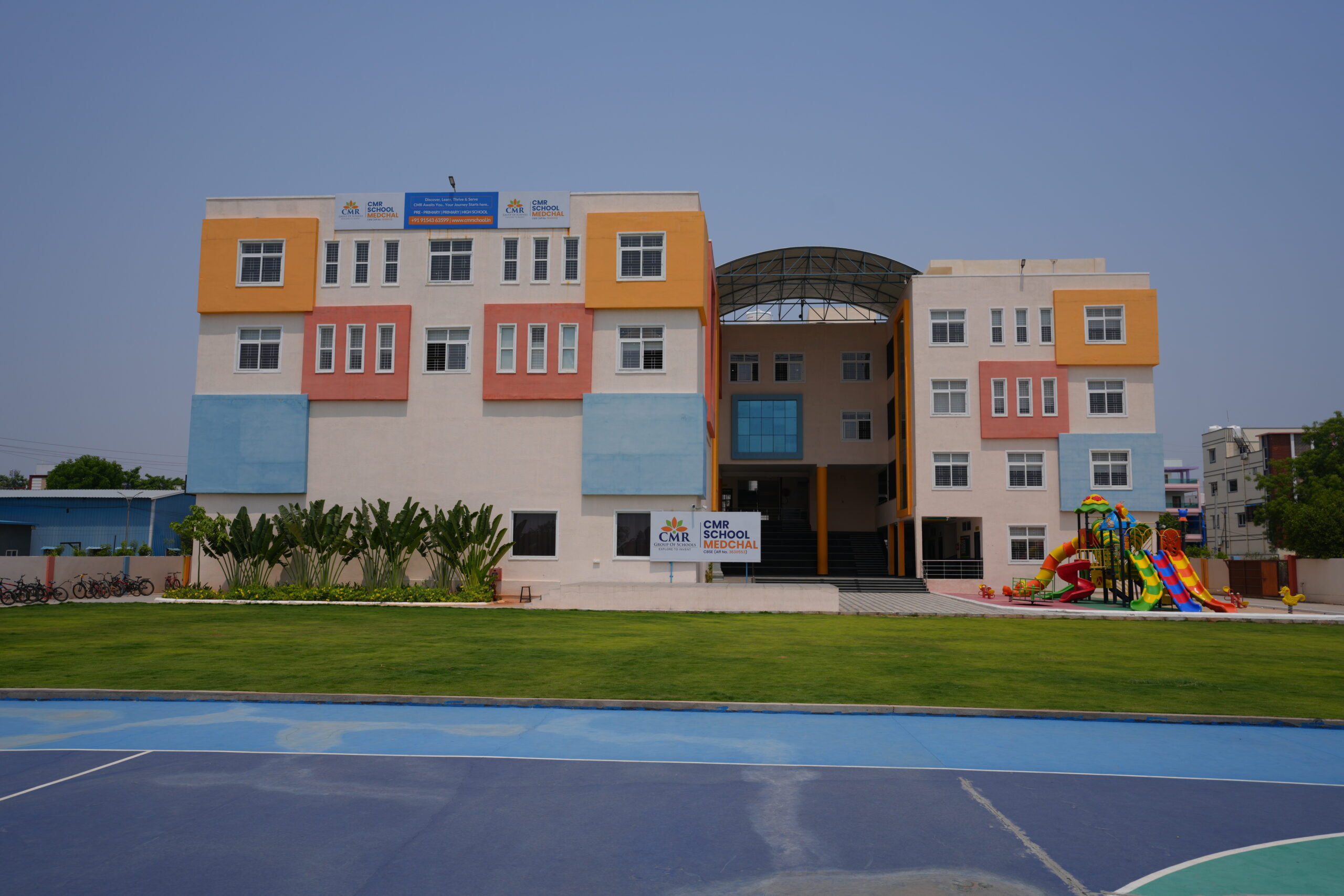what-does-psychological-trauma-look-like-in-schools-and-what-can-schools-do-about-it
Psychological trauma is more common in schools than we often realize. It can significantly impact a student’s emotional well-being, academic performance, and social interactions. Schools play a crucial role in recognizing, addressing, and supporting students who have experienced trauma.
At CMR School, Medchal, we believe in creating a safe and nurturing environment where every child feels valued and supported. Understanding what trauma looks like and how to respond effectively can make a world of difference in a child’s education and personal growth.
What is Psychological Trauma?
Psychological trauma occurs when a student experiences an event or series of events that cause emotional distress, fear, or helplessness. It could result from:
- Family issues: Domestic violence, divorce, parental neglect, or substance abuse.
- Bullying or peer conflicts: Persistent teasing, cyberbullying, or social exclusion.
- Loss or grief: Death of a loved one, separation, or abandonment.
- Community or environmental stressors: Poverty, violence, or natural disasters.
- Academic pressures: Extreme stress due to performance expectations.
Trauma affects children differently. Some may become withdrawn, while others may act out in frustration. Recognizing the signs is the first step to providing the right support.
Signs of Psychological Trauma in Students
Trauma manifests in various ways, depending on the child’s age, personality, and past experiences. Some common signs include:
1. Emotional and Behavioral Changes
- Anxiety, depression, or extreme mood swings
- Sudden anger or aggression
- Social withdrawal and isolation
- Fearfulness or excessive clinginess
2. Academic Difficulties
- Difficulty concentrating
- Sudden drop in grades
- Lack of motivation or interest in schoolwork
- Frequent absences or skipping school
3. Physical Symptoms
- Frequent headaches or stomachaches
- Sleep disturbances or nightmares
- Fatigue and low energy levels
4. Social Challenges
- Difficulty forming or maintaining friendships
- Lack of trust in adults or authority figures
- Increased conflicts with peers or teachers
It’s important to remember that these signs can also be caused by other factors. However, if a pattern emerges, educators and parents should take action.
What Schools Can Do to Support Traumatized Students
At CMR School, Medchal, we believe in a proactive approach to supporting students who may be experiencing trauma. Here’s what schools can do:
1. Create a Safe and Supportive Environment
A positive school climate can help students feel safe. Schools should:
- Foster strong relationships between students and teachers.
- Encourage open communication and active listening.
- Establish anti-bullying policies and enforce them consistently.
2. Train Teachers to Recognize Trauma
Teachers are often the first to notice changes in a student’s behavior. Schools should provide:
- Trauma-informed training to help educators identify signs of distress.
- Strategies to support students without overwhelming them.
- Guidance on when and how to seek professional help.
3. Provide Access to Counseling and Mental Health Support
Having a school counselor or psychologist available can make a huge difference. Support should include:
- One-on-one counseling sessions.
- Group therapy or peer support programs.
- Workshops on emotional resilience and coping strategies.
4. Incorporate Social-Emotional Learning (SEL) into the Curriculum
SEL helps students develop emotional intelligence, empathy, and problem-solving skills. Schools can:
- Teach mindfulness and relaxation techniques.
- Encourage journaling or creative expression.
- Promote activities that build self-confidence and social skills.
5. Engage Families and Caregivers
Parents and caregivers should be involved in the healing process. Schools can:
- Offer workshops on trauma awareness and coping strategies.
- Create strong school-family partnerships.
- Provide resources and referrals for professional help if needed.
6. Reduce Academic Stress
For some students, academic pressure can worsen trauma symptoms. Schools can:
- Offer flexible deadlines and alternative assessment methods.
- Provide tutoring or mentoring for struggling students.
- Encourage extracurricular activities as a way to relieve stress.
7. Encourage Peer Support Programs
Having a buddy system or peer mentoring can provide emotional support. Schools can:
- Train student leaders to offer guidance and friendship.
- Encourage group activities that promote inclusion.
- Address bullying and social conflicts proactively.
How CMR School, Medchal, Supports Students’ Mental Well-being
At CMR School, Medchal, we are committed to nurturing not just academic excellence but also the mental and emotional well-being of our students. Our trauma-sensitive approach includes:
✅ Trained Educators: Our teachers are trained to recognize and support students facing emotional challenges.
✅ Counseling Services: We provide access to school counselors for emotional and psychological support.
✅ Safe Learning Spaces: We create an inclusive environment where students feel secure and respected.
✅ Parental Involvement: We work closely with families to ensure children receive holistic support.
✅ Social-Emotional Learning Programs: Our curriculum integrates mindfulness, emotional intelligence, and self-care practices.
Final Thoughts
Trauma can have a lasting impact on a child’s academic performance and overall development. However, with the right support system, children can learn to cope, heal, and thrive. Schools play a vital role in creating a safe, supportive, and nurturing environment where students can feel valued and empowered.
At CMR School, Medchal, we prioritize our students’ emotional well-being, ensuring they receive the care, attention, and resources they need to succeed in life. Together, educators, parents, and peers can help make school a place of healing and growth for every child.
FAQs
1. How can teachers identify if a student is experiencing trauma?
Teachers should look for signs like mood swings, withdrawal, difficulty concentrating, frequent absences, and changes in academic performance.
2. What can parents do if they suspect their child has experienced trauma?
Parents should provide a supportive home environment, encourage open communication, and seek professional counseling if needed.
3. Why is mental health support important in schools?
Students spend a significant part of their lives in school, so providing emotional support can help them cope better and perform academically.
4. How does CMR School, Medchal, address student trauma?
We offer counseling services, social-emotional learning programs, and a trauma-sensitive approach to education.
5. What role do peers play in helping students overcome trauma?
Peers can provide emotional support, companionship, and encouragement, helping traumatized students feel less isolated.
By prioritizing mental well-being, CMR School, Medchal ensures that every student feels seen, heard, and supported, helping them grow into confident and resilient individuals. 💙






